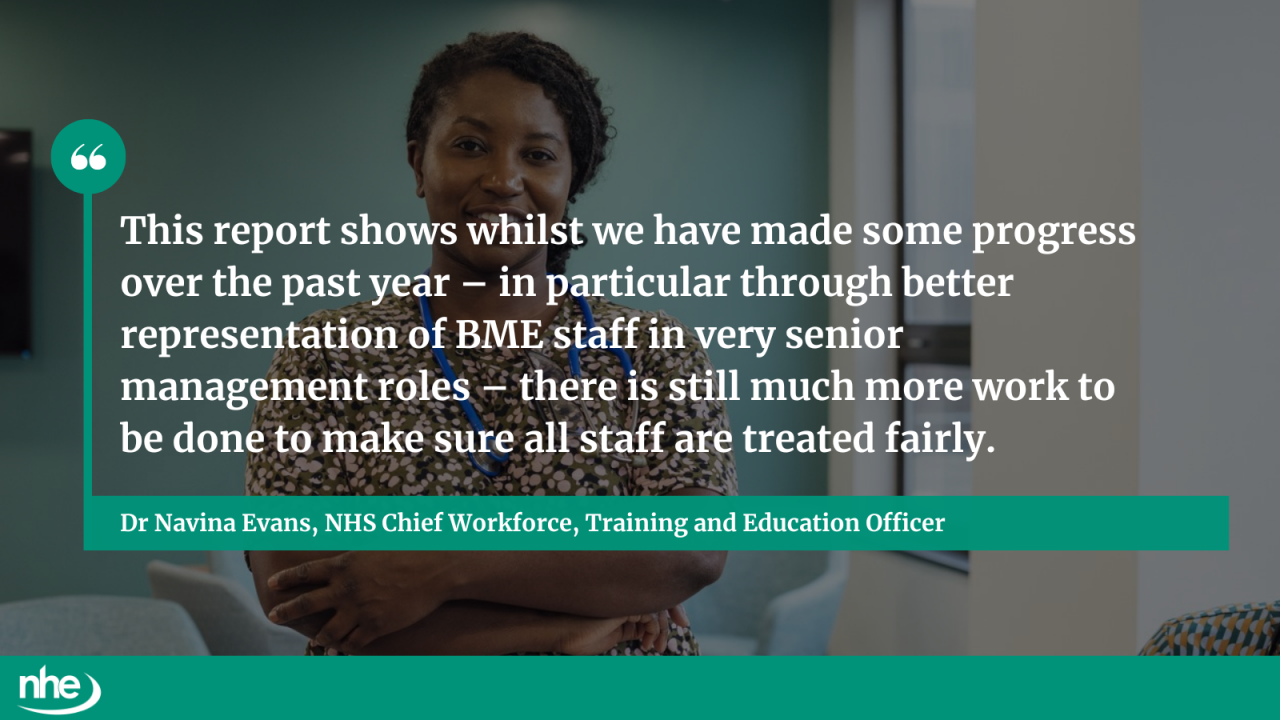The latest NHS Workforce Race Equality Standard report has revealed that one in eight senior NHS managers are now from Black and Minority Ethnic backgrounds, marking a significant step forward in representation, but one that highlights persistent inequalities in recruitment and career progression.
The report shows that 12.7% of very senior managers are from BME backgrounds, up from 11.2% in 2023, and marking an 85% increase since 2018. The total number of BME senior managers has risen from 201 in 2018 to 372 in 2024.
Meanwhile, the proportion of all NHS staff from BME backgrounds has grown from 26.4% to 28.6% over the past year.
Despite these gains, the report highlights ongoing challenges:
- 80% of NHS trusts reported that white applicants were significantly more likely to be appointed from shortlisting than BME applicants.
- Only 48.8% of BME staff felt their trust provided equal opportunities for career progression, compared to 59.4% of white staff.
The 2024 NHS Workforce Disability Equality Standard (WDES) report, also released today, found that:
- Disabled people are fairly represented on NHS boards.
- Candidates who declare a disability are just as likely to be appointed as non-disabled applicants.
- More employers are making reasonable adjustments to support disabled staff.
- However, disabled staff are still twice as likely to be performance-managed and report higher levels of bullying and harassment from managers and colleagues.
The NHS’ Chief Workforce, Training and Education Officer, Dr Navina Evans, said:
“It’s vital that NHS staff from black and minority ethnic backgrounds or those with a disability have equal access to career opportunities so that we can provide the high-quality care for patients.
“This report shows whilst we have made some progress over the past year – in particular through better representation of BME staff in very senior management roles – there is still much more work to be done to make sure all staff are treated fairly.
“NHS employers must continue efforts to create an environment where all staff feel they belong, can safely raise concerns, and are empowered to deliver the best care possible.”

NHS leaders have acknowledged the progress made but emphasised the need for continued action to ensure equity, inclusion, and fairness across the workforce.
Image credit: iStock



















